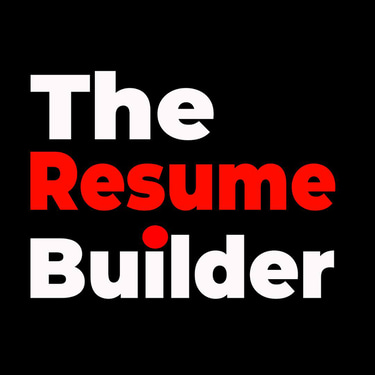Mental Preparation and Psychology during Interviews
Abhishek Kundu
12/12/20243 min read


In today’s job market, performing well in an HR interview is not just about your skills and resume; it’s also about mental preparation and understanding the psychology behind the interaction. The Human Resource professional is often the gatekeeper to your dream job, assessing your attitude, confidence, and cultural fit. To ace this step, it’s crucial to manage your mindset, stay composed, and align your responses with the organization’s expectations.
This article explores mental preparation techniques and real-life scenarios to help you navigate HR interviews effectively.
Why Mental Preparation is Crucial for HR Interviews
HR professionals are trained to observe more than just your words; they focus on non-verbal cues, emotional stability, and overall confidence. Effective mental preparation ensures:
You remain calm under pressure.
Your answers reflect clarity and positivity.
You exude confidence without appearing arrogant.
You handle challenging or tricky questions effectively.
Psychological Tips to Stay Mentally Strong
Visualize Success
Close your eyes and imagine walking into the interview room confidently, greeting the HR, and answering questions with ease. This exercise reduces anxiety and prepares your brain for success.
Reframe Negative Thoughts
Replace “What if I fail?” with “I am well-prepared, and I will do my best.” Positive affirmations help reduce nervousness.
Be Aware of Your Body Language
Maintain steady eye contact, sit upright, and smile naturally. These small psychological signals show confidence and trustworthiness.
Live-Based Scenarios for Understanding Psychology in Interviews
Here are some practical examples with Indian names to make the concepts clear:
1. Handling a Stress Question with Calmness
Scenario: Anisha is being interviewed for a marketing role. The HR asks, “Why do you have a career gap?”
Mental Approach: Instead of panicking, Anisha remains composed and mentally reframes this question as an opportunity.
Response: “I took a break to upskill myself with a digital marketing certification and also focused on personal growth. Now, I’m better prepared to contribute effectively to this role.”
Key Takeaway: Stay calm, reframe gaps positively, and avoid defensive or apologetic answers.
2. Responding to a Hypothetical Scenario
Scenario: Rajesh is asked, “How would you handle a situation where your manager criticizes you publicly?”
Mental Approach: Rajesh reminds himself not to react emotionally and focuses on demonstrating his emotional intelligence.
Response: “I would remain calm and later request a private meeting with my manager to understand their feedback and address the issue constructively.”
Key Takeaway: HRs test your ability to stay composed under tough situations. Always emphasize problem-solving and emotional maturity.
3. Navigating the “Tell Me About Yourself” Question
Scenario: Priya, applying for an HR role, is nervous about talking about herself.
Mental Approach: Priya prepares a clear, confident script in advance focusing on her achievements, strengths, and career goals.
Response: “I am a certified HR professional with 5 years of experience in recruitment and employee engagement. I’ve successfully led projects that improved employee retention by 15%. I look forward to bringing similar value here.”
Key Takeaway: Prepare a concise and structured introduction that highlights your value. This sets the tone for the interview.
4. Addressing Weaknesses Without Undermining Yourself
Scenario: Vivek is asked, “What is your biggest weakness?”
Mental Approach: Vivek stays self-aware but focuses on showing growth.
Response: “I used to struggle with time management, but I’ve improved by using productivity tools like Trello and prioritizing tasks. It’s helped me meet deadlines efficiently.”
Key Takeaway: Choose a real weakness, show how you’re improving, and end on a positive note.
Key Psychological Hacks to Remember
Focus on the HR’s Perspective: Think about what they want—confidence, cultural fit, and problem-solving abilities. Frame answers accordingly.
Pause Before Responding: If faced with an unexpected question, take a moment to breathe and structure your response.
Avoid Overthinking: Don’t let small mistakes derail your focus. Stay present and move on with confidence.
Mock Practice: Practice common HR questions with friends or mentors to gain confidence and refine your tone.
Final Thoughts
Mental preparation and psychological awareness can make a significant difference in how you perform in HR interviews. By staying calm, framing your answers positively, and focusing on solutions, you position yourself as a confident and desirable candidate.
Whether it’s answering tricky questions or showcasing emotional maturity, the key lies in preparation and practice. Keep visualizing success, stay positive, and remember—HR interviews are as much about who you are as they are about what you know. With the right mindset, you can win their trust and take the next step in your career.
#JobInterviewTips #HRInterview #InterviewPreparation #CareerGrowth #MentalPreparation #InterviewPsychology #BodyLanguageTips #ConfidenceBuilding #NonVerbalCommunication #StayCalmUnderPressure #PositiveMindset #InterviewSuccess #EmotionalIntelligence #HRQuestions #MockInterviews #JobSearchSuccess #SelfAwareness #AnsweringTrickyQuestions #InterviewCoaching #CareerAdvice #InterviewSkills #ProfessionalGrowth #JobMarketTips #IndianJobSeekers #InterviewScenarios #HandlingStressQuestions #PersonalDevelopment #PublicSpeakingConfidence #CulturalFit #CareerSuccess
Expert in
Professional Resume Writing Company in Kolkata, West Bengal
Professional Resume Writer in Kolkata, West Bengal
ATS Resume Writing in Kolkata, West Bengal
GET IN TOUCH
theresumebuilderindia@gmail.com
+91 89813 60947
© 2015. All rights reserved by Abhishek Kundu Resume Writing Co.
abhishek@atsresumewriting.in
